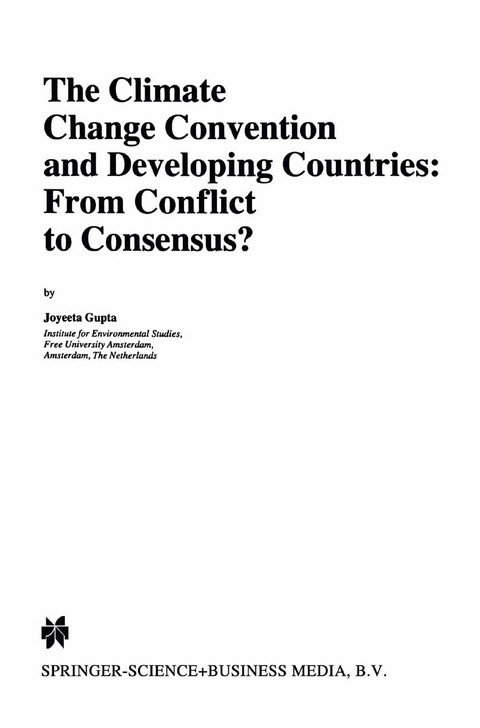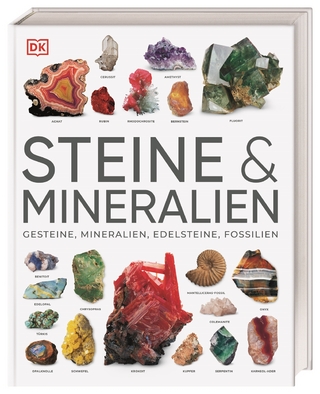
The Climate Change Convention and Developing Countries
From Conflict to Consensus?
Seiten
2010
|
Softcover reprint of hardcover 1st ed. 1997
Springer (Verlag)
978-90-481-4858-5 (ISBN)
Springer (Verlag)
978-90-481-4858-5 (ISBN)
The climate change problem can only be effectively dealt with if global anthropogenic greenhouse gas (GHG) emissions can be reduced substantially. Since the emission of such gases is closely related to the economic growth of countries, a critical problem to be addressed by the United Nations Framework Convention on Climate Change (FCCC) is: how will the permissible emission levels be shared between industrialised (ICs) and developing countries (DCs)? The thesis of this book is that the long-term effectiveness of the FCCC runs the risk of a horizontal negotiation deadlock between countries and the risk of vertical standstill within countries if there is little domestic support for the domestic implementation of measures being announced in international negotiations. The research question is: Can one observe trends towards horizontal deadlock and vertical standstill and if yes, how can the treaty design be improved so as to avoid such potential future bottlenecks? The research focuses on the perspectives of domestic actors on the climate convention and related issues in four developing countries: India, Indonesia, Kenya and Brazil. The following key findings emerge from the research: 1. Handicapped negotiating power: The common theme of the foreign policy of DCs is that ICs are responsible for the bulk of the GHG emissions and need to take appropriate domestic action.
1. The climate change issue.- 2. A theoretical framework.- 3: The domestic context: Opportunities and risks.- 4: Foreign policy: Between solidarity and fighting inequity.- 5: GEF: The case of power politics.- 6: Joint Implementation: Between hope and angst.- 7: Policy options and related non-decisions.- 8: The politics of climate science.- 9: The science of climate politics.- 10: Towards enhanced cooperation.- References.- List of treaties and other international legal instruments.- Table of cases, UN and other international documents.- Appendix 1: The United Nations Framework Convention on Climate Change.- Appendix 2: List of questions for the interviews.- Appendix 3: Matrix of interviewees.
| Erscheint lt. Verlag | 15.12.2010 |
|---|---|
| Reihe/Serie | Environment & Policy ; 8 |
| Zusatzinfo | XII, 249 p. |
| Verlagsort | Dordrecht |
| Sprache | englisch |
| Maße | 155 x 235 mm |
| Themenwelt | Sachbuch/Ratgeber ► Natur / Technik ► Natur / Ökologie |
| Naturwissenschaften ► Biologie ► Ökologie / Naturschutz | |
| Naturwissenschaften ► Geowissenschaften | |
| Recht / Steuern ► EU / Internationales Recht | |
| Recht / Steuern ► Öffentliches Recht ► Umweltrecht | |
| Technik | |
| Wirtschaft ► Volkswirtschaftslehre ► Makroökonomie | |
| ISBN-10 | 90-481-4858-8 / 9048148588 |
| ISBN-13 | 978-90-481-4858-5 / 9789048148585 |
| Zustand | Neuware |
| Haben Sie eine Frage zum Produkt? |
Mehr entdecken
aus dem Bereich
aus dem Bereich
über 500 faszinierende Gesteine, Minerale, Edelsteine und Fossilien
Buch | Hardcover (2023)
DK Verlag Dorling Kindersley
26,95 €
vom Wald her die Welt verstehen. Erstaunliche Erkenntnisse über den …
Buch | Softcover (2023)
Ludwig (Verlag)
28,00 €
vollständig aktualisierte Neuausgabe mit den zusätzlichen …
Buch | Softcover (2023)
Westend (Verlag)
22,00 €


